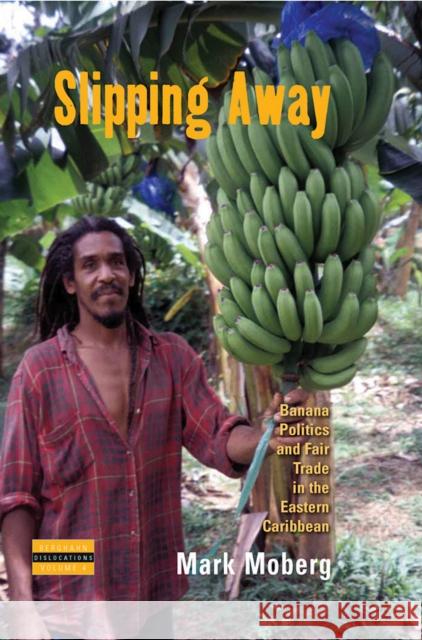Slipping Away: Banana Politics and Fair Trade in the Eastern Caribbean » książka
Slipping Away: Banana Politics and Fair Trade in the Eastern Caribbean
ISBN-13: 9781845451974 / Angielski / Miękka / 2010 / 272 str.
Slipping Away: Banana Politics and Fair Trade in the Eastern Caribbean
ISBN-13: 9781845451974 / Angielski / Miękka / 2010 / 272 str.
(netto: 130,37 VAT: 5%)
Najniższa cena z 30 dni: 135,22
ok. 22 dni roboczych.
Darmowa dostawa!
" G]racefully written - a pleasure to read ... This is a fine example of how ethnographic and historical research might be used to advance our understanding of contemporary globalization." - Marc Edelman, CUNY, Graduate Center During the 1990s, the Eastern Caribbean was caught in a bitter trade dispute between the US and EU over the European banana market. When the World Trade Organization rejected preferential access for Caribbean growers in 1998 the effect on the region's rural communities was devastating. This volume examines the "banana wars" from the vantage point of St. Lucia's Mabouya Valley, whose recent, turbulent history reveals the impact of global forces. The author investigates how the contemporary structure of the island's banana industry originated in colonial policies to create a politically "stable" peasantry, followed by politicians' efforts to mobilize rural voters. These political strategies left farmers dependent on institutional and market protection, leaving them vulnerable to any alteration in trade policy. This history gave way to a new harsh reality, in which neoliberal policies privilege price and quantity over human rights and the environment. However, against these challenges, the author shows how the rural poor have responded in creative ways, including new social movements and Fair Trade farming, in order to negotiate a stronger position for themselves in the in a shifting global economy. Mark Moberg is a Professor of Anthropology at the University of South Alabama. His research centers on the economic and political dimensions of rural development in Central America and the Caribbean. He has published extensively in cultural and applied anthropology and is the author or co-editor of three previous books: Citrus, Strategy and Class (1992), Myths of Ethnicity and Nation (1997), and Banana Wars (2003; edited with Steve Striffler).
"[G]racefully written - a pleasure to read ... This is a fine example of how ethnographic and historical research might be used to advance our understanding of contemporary globalization." · Marc Edelman, CUNY, Graduate CenterDuring the 1990s, the Eastern Caribbean was caught in a bitter trade dispute between the US and EU over the European banana market. When the World Trade Organization rejected preferential access for Caribbean growers in 1998 the effect on the regions rural communities was devastating. This volume examines the "banana wars" from the vantage point of St. Lucias Mabouya Valley, whose recent, turbulent history reveals the impact of global forces. The author investigates how the contemporary structure of the islands banana industry originated in colonial policies to create a politically "stable" peasantry, followed by politicians efforts to mobilize rural voters. These political strategies left farmers dependent on institutional and market protection, leaving them vulnerable to any alteration in trade policy. This history gave way to a new harsh reality, in which neoliberal policies privilege price and quantity over human rights and the environment. However, against these challenges, the author shows how the rural poor have responded in creative ways, including new social movements and Fair Trade farming, in order to negotiate a stronger position for themselves in the in a shifting global economy.Mark Moberg is a Professor of Anthropology at the University of South Alabama. His research centers on the economic and political dimensions of rural development in Central America and the Caribbean. He has published extensively in cultural and applied anthropology and is the author or co-editor of three previous books: Citrus, Strategy and Class (1992), Myths of Ethnicity and Nation (1997), and Banana Wars (2003; edited with Steve Striffler).











